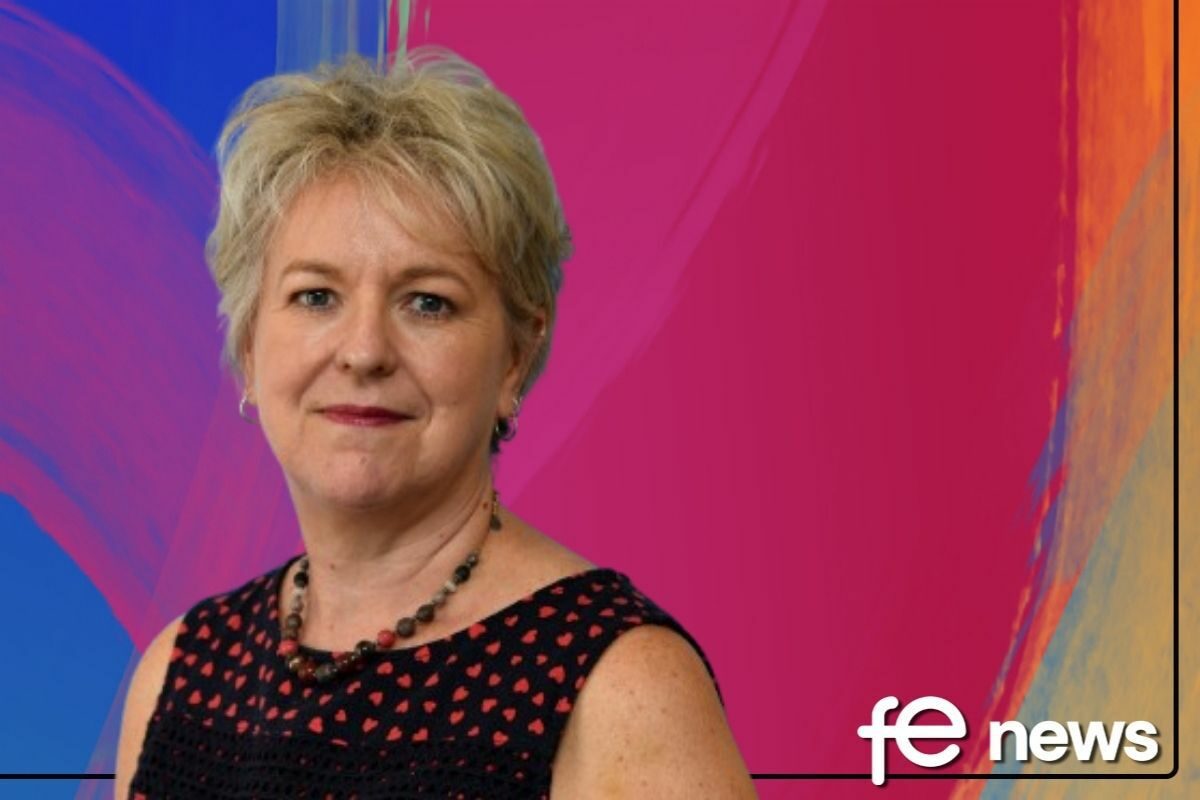ESFA funded 16 to 18 traineeships

Information about 16 to 18 traineeships funded by Education and Skills Funding Agency
Introduction
Education and Skills Funding Agency (ESFA) funds 16 to 18 traineeships through institutions having a contract/grant funding agreement. The following information is designed to support institutions in understanding traineeships funded under the 16 to 19 funding methodology.
Separate information is available on traineeships funded under the adult education budget (AEB) funding methodology.
Traineeships are a demand led programme which can benefit young people if they are within 6 months of being able to get sustainable employment or an apprenticeship.
We introduced Traineeships in 2013 and further information about the policy, the content of the programme and details on work experience arrangements are available on GOV.UK.
Coronavirus (COVID-19) specific update
We have published new guidance for training providers delivering traineeships during the Coronavirus (COVID-19) pandemic. This guidance is for all training providers who are delivering ESFA funded traineeships to young people aged 16 to 24 and up to age 25 for those with an Education, Health and Care plan and replaces the existing guidance until further notice.
Provider eligibility
There are no unique provider eligibility requirements for traineeships.
Funding
Funding for traineeships
16 to 19 traineeships are funded as study programmes on a per student basis. Further information is available in our Funding guidance. The unique characteristics of a traineeship are:
- they have a programme aim on the ILR or an indicator in the school census
- they last a minimum of 6 weeks up to a maximum of 6 months and should reflect the needs of the student
- students on them would normally be funded in a part time band
- the core aim must be work experience
You can use as much of your study programme allocation as you see fit for delivering traineeships.
Accessing further 16 to 18 funding to increase the number of traineeships
Each October, we tell institutions delivering traineeships with 16 to 18 funding when they can submit business cases for traineeship in-year growth. The business case window opens for around 3 weeks from the middle of November. During this time, institutions can submit a business case through our online enquiry form.
For colleges and independent learning providers we will look at the R04 data return to assess how much of your in year allocation has been used to date. For other provider types, we will use other latest data available.
Business cases must include supporting evidence of employer support for additional starts in-year, together with evidence of student demand; we cannot support business cases without this evidence. All awards are subject to overall affordability and we usually communicate outcomes in the following February.
Independent Learning Providers
ESFA monitors delivery by independent learning providers throughout the year and currently provides growth funding where an institution has reached their full allocation at specified points, starting in-year with the February ILR return. Further information is available for independent learning providers.
Providers without an ESFA 16 to 18 contract
Providers that only had adult contracts were given the opportunity to request funding for 16 to 18 traineeships (through the former Skills Funding Agency) and received allocations specifically for 16 to 18 traineeships. If you do not have an ESFA 16 to 18 contract, you should look out for market entry opportunities.
Outcomes
Definitions for successful outcomes
Successful outcomes will be within 6 months of leaving/completing a traineeship, the trainee:
- to have had 8 consecutive weeks of employment/self-employment of 16 hours a week or more (if 16 or 17 years old with RPA compliant amount of training) or
- to have started on an apprenticeship by passing the qualifying period to count in funding terms or
- to have started on a further learning course at level 2 or level 3 by passing the qualifying period to count in funding terms – the further learning should include a substantial qualification recognised in the DfE performance tables. You can access the lists for each of the years from 2015 to 2018 for further detail.
Completion of programme, outcomes, funding and quality implications
We use both the programme aim and the core aim to calculate retention fro traineeships:
We use the programme aim to determine if the student is on a traineeship programme at some point in the academic year. Please use code programme type 24 if this applies. We also use the aim to determine if the programme is complete, transferred or withdrawn. This is important for calculating retention.
The core aim determines if a traineeship programme is the latest programme taken by the student in the year. If the student subsequently enrols on a non-traineeship study programme then it is the subsequent study programme that will be counted for retention purposes.
Completion can be either by fulfilling the planned hours or by leaving early to achieve a successful outcome. The programme aim in the ILR should correctly reflect the completion and achievement status of each student on a traineeship. There are four possible scenarios which define retention, funding and outcomes:
- the trainee completes the planned hours on the core aim and progresses to a successful outcome, which is retained in funding terms and positive in quality terms. In this scenario the programme aim should be recorded as completed and achieved
- the trainee completes the planned hours on the core aim but does not progress to a successful outcome, which is retained in funding terms, but negative in quality terms. In this scenario the programme aim should be recorded as completed and not achieved
- the trainee leaves the core aim early and progresses to a successful outcome, which is retained in funding terms and positive in quality terms. In this scenario the programme aim should be recorded as withdrawn and achieved – the student would still be retained because they have a positive destination
- the trainee leaves early and does not achieve a successful outcome, which is negative in retention terms and negative in quality terms. In this scenario the programme aim should be recorded as withdrawn and not achieved
English and maths
The condition of funding for English and maths and traineeships
Students on traineeships are subject to the condition of funding. This means that trainees who do not hold a GCSE grade 9 to 4 or A* to C in maths and/or English are required to study an approved stepping stone qualification in maths and/or English. The condition of funding grade 3 or grade D requirement does not apply to traineeships as they are treated as part time students. Further information is available about the condition of funding for English and maths.
English and maths studied during a 16 to 18 traineeship
Institutions must be able to demonstrate educational progression for students recruited onto programmes funded by the ESFA and be able to record evidence of good educational reasons for any individual students recruited to programmes which do not provide progression. All such students should only make up a small percentage of the total student cohort.
If a learner does not complete the English and maths elements of the traineeship within 6 months then these will continue to be funded until they are completed. Detail on how this is handled on the ILR can be found on GOV.UK.
English and maths studied after progressing from a 16 to 18 traineeship
When a trainee progresses from a traineeship the next English and maths studied should be at a higher level than they studied on the traineeship.
Delivering traineeships
Delivery expectations
The expectation is that the number of providers and traineeships per provider will grow compared to previous years. There are published figures available on the total number of traineeships.
Delivering a successful traineeship
The primary objective of a traineeship is to progress the trainee to an apprenticeship or other sustainable jobs. Alternatively, the trainee could enrol on a course of further learning including a full time study programme at level 2 or 3.
Work experience
The purpose of traineeships is to prepare young people for employment so that they are able to progress successfully to apprenticeships and other sustainable jobs. Work experience in traineeships should give the young person experience of a real workplace so they can develop the skills, knowledge, confidence, attitudes and behaviours they need to succeed at work. Ideally, this should be with an external employer, external to the learning environment and at an external site. However, exceptions to this will be funded. For example, local authorities with a training arm where the direct provision of training is clearly not the local authority’s core business, work experience within departments which are separate to the training arm counts as external work experience.
In these cases providers will need to make a judgement about whether their work placements genuinely provide students with the experiences they need to develop the work-related attributes expected of a traineeship. Ultimately Ofsted make judgements about the suitability of these arrangements through inspection and grading of providers.
Simulated activity in an artificial environment may well form a helpful part of work preparation training but will not count as work placements for the purposes of traineeships.
Data
ILR requirements for the recording of traineeships
Further information is available on the ILR requirements for traineeships.
For further details please read the traineeships section of the provider support manual.
School Census requirements for the recording of traineeships
Information is available on the census requirements for traineeships.
For further details please read the school census.
There is also support available to institutions submitting the school census in the Interactive Post-16 Census Tool.
Queries on ESFA funded traineeships
ESFA enquiries
Contact formhttps://form.education…
For all enquiries for the Education and Skills Funding Agency
Version control
This document is Version 3.0 and the content was first published March 2015.
Published 18 March 2015
Last updated 11 May 2020 + show all updates
-
We have published new guidance for training providers delivering traineeships. We have added a new section for Coronavirus (COVID-19) to explain this and where to find the guidance
-
General refresh and updated for 2019 to 2020.
-
Completion of programme, outcomes, funding and quality implications has been updated.
-
Updated for 2016 to 2017
-
Updated information added on provider eligibility
-
First published.











Responses